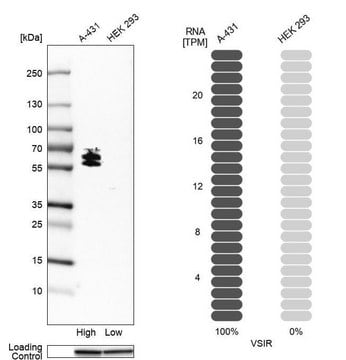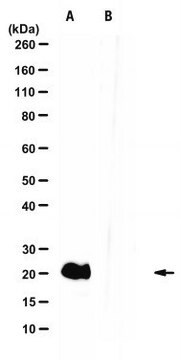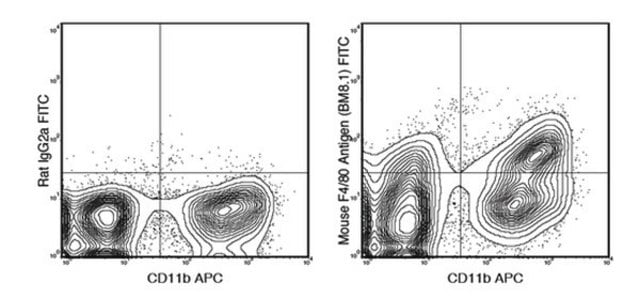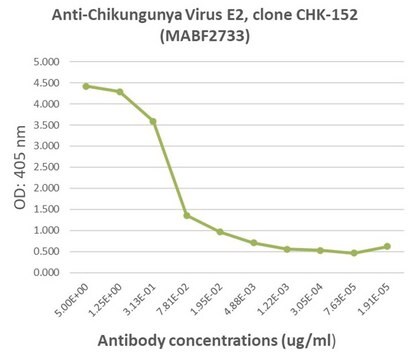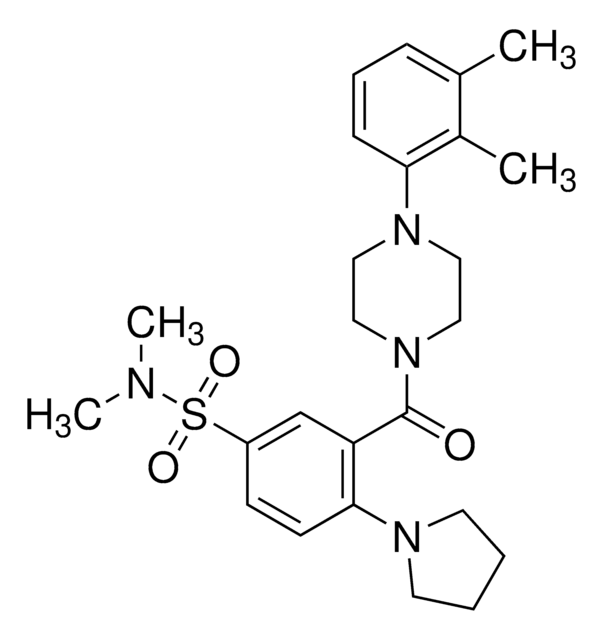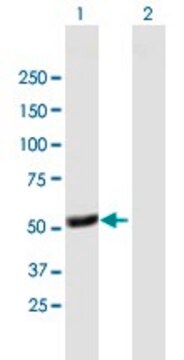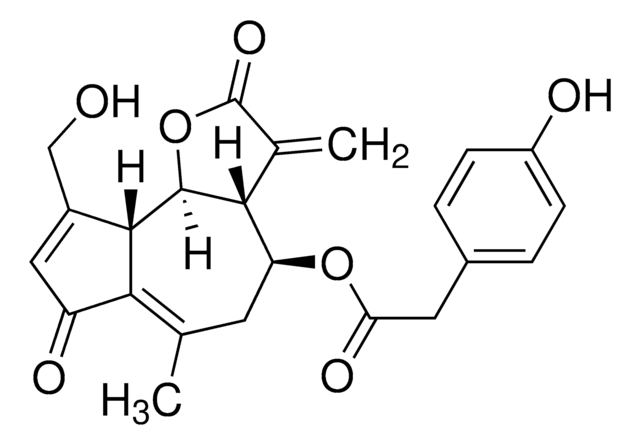MABF3030
Anti-IL-11 Antibody, clone 12-2E-6G
Sinónimos:
Interleukin-11
About This Item
Productos recomendados
origen biológico
rat
Nivel de calidad
forma del anticuerpo
purified antibody
tipo de anticuerpo
primary antibodies
clon
12-2E-6G, monoclonal
mol peso
calculated mol wt 21.52 kDa
observed mol wt ~20 kDa
purificado por
using protein G
reactividad de especies
mouse
envase
antibody small pack of 100 μL
técnicas
immunohistochemistry: suitable
western blot: suitable
isotipo
IgG2aκ
secuencia del epítopo
Unknown
Nº de acceso Protein ID
Nº de acceso UniProt
temp. de almacenamiento
2-8°C
modificación del objetivo postraduccional
unmodified
Información sobre el gen
mouse ... IL11(16156)
Descripción general
Especificidad
Inmunógeno
Aplicación
Evaluated by Western Blotting in HEK293T cells transiently transfected with murine IL-11.
Western Blotting Analysis (WB): A 1:250 dilution of this antibody detected IL-11 in HEK293T cells transiently transfected with murine IL-11, but not in wild-type HEK293T cells.
Tested Applications
Western Blotting Analysis: A representative lot detected IL-11 in Western Blotting application (Deguchi, Y., et al. (2018). Biochem Biophys Res Commun. 505(2):453-459; Nishina, T., et al. (2021). Nat Commun. 12(1):2281).
Immunohistochemistry Applications: A representative lot detected IL-11 in Immunohistochemistry application (Deguchi, Y., et al. (2018). Biochem Biophys Res Commun. 505(2):453-459; Nishina, T., et al. (2021). Nat Commun. 12(1):2281).
Note: Actual optimal working dilutions must be determined by end user as specimens, and experimental conditions may vary with the end user.
Forma física
Reconstitución
Almacenamiento y estabilidad
Otras notas
Cláusula de descargo de responsabilidad
Not finding the right product?
Try our Herramienta de selección de productos.
Código de clase de almacenamiento
12 - Non Combustible Liquids
Clase de riesgo para el agua (WGK)
WGK 1
Punto de inflamabilidad (°F)
Not applicable
Punto de inflamabilidad (°C)
Not applicable
Certificados de análisis (COA)
Busque Certificados de análisis (COA) introduciendo el número de lote del producto. Los números de lote se encuentran en la etiqueta del producto después de las palabras «Lot» o «Batch»
¿Ya tiene este producto?
Encuentre la documentación para los productos que ha comprado recientemente en la Biblioteca de documentos.
Nuestro equipo de científicos tiene experiencia en todas las áreas de investigación: Ciencias de la vida, Ciencia de los materiales, Síntesis química, Cromatografía, Analítica y muchas otras.
Póngase en contacto con el Servicio técnico
